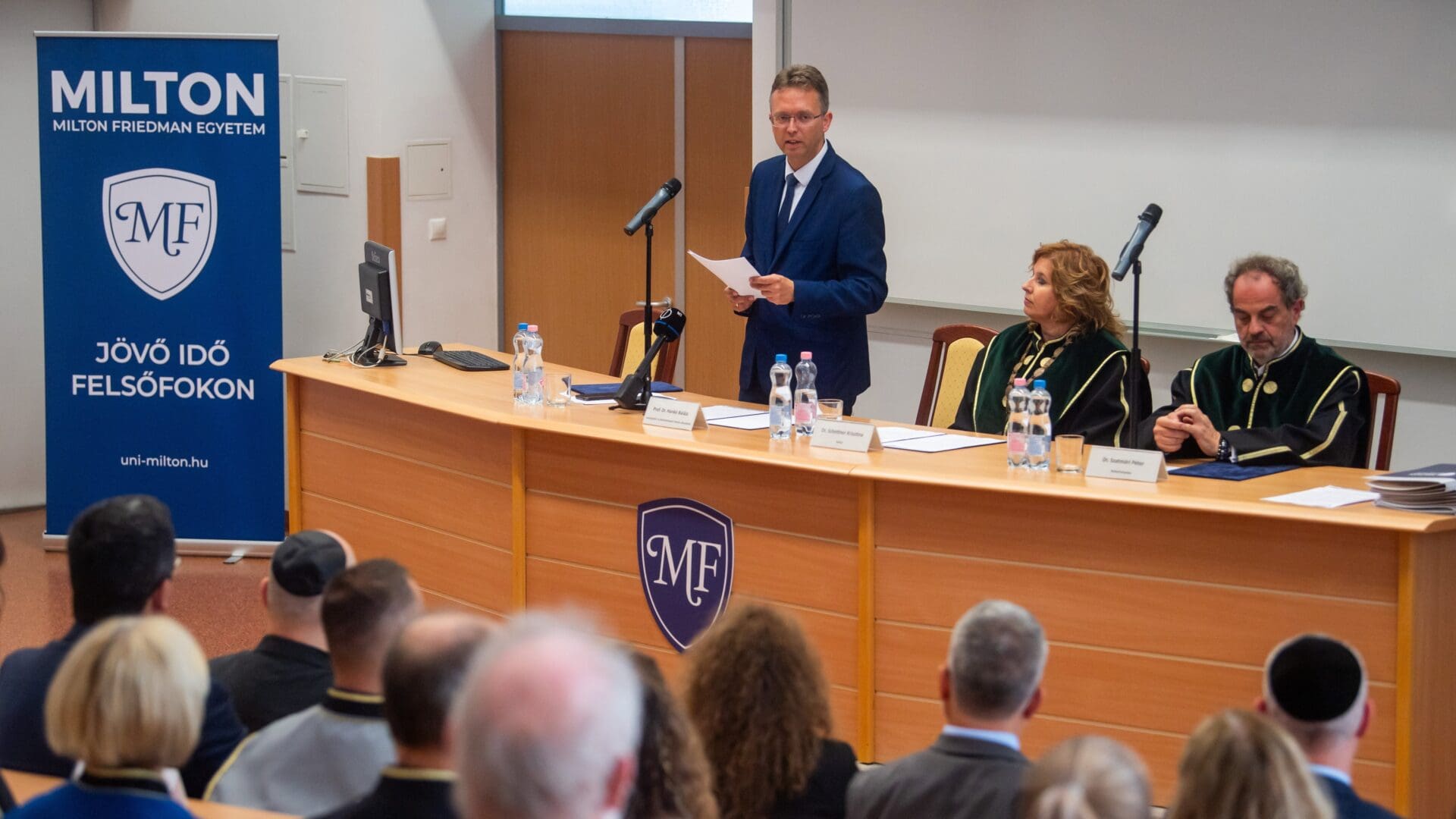Hungarian higher education is rising to a new level of competitiveness, according to State Secretary for Innovation and Higher Education Balázs Hankó.
During the opening of the Milton Friedman University’s academic year on Thursday, 31 August, Hankó stated that it was a great time to be a university student in Hungary, as those with degrees find employment almost immediately, on average within 36 days, and a university degree translates to at least a one-and-a-half times salary multiplier.
The state secretary remarked that Hungarian universities are performing increasingly well amidst intensifying international competition. While four years ago, Hungary had seven institutions in the top five per cent of the world’s universities, and two years ago, there were nine, today there are already eleven, he highlighted. Furthermore, over the past four years, the number of publications in excellent international scientific journals has increased by 78 per cent, and Hungary ‘quadrupled the number of patents,’ Hankó added.
Hankó attributed these successes to ‘three pillars’: university autonomy in research, education, and financial and organizational aspects; flexible, competitive operation; and, thanks to a six-year financing agreement. (Editor’s note: The government introduced the special financing agreements with universities on a bilateral basis to make up for the temporarily lost EU funding for the Erasmus programmes.) He said it was a pleasure to see more and more people wanting to be part of this success, as this year saw
a 33 per cent increase in the number of students admitted to universities, surpassing 106,000.
‘This year, Hungary’s eighth-largest city is the community of first-year students,’ he noted. As a result of the synergies between universities and the business sector, there has been a 39 per cent increase in the number of students admitted to STEM programmes.
He also recalled that the most significant increase of student numbers was in the field of teaching, with 72 per cent more students starting their studies this fall compared to the previous year, totalling 4,141 future teachers. According to his assessment, it is outstanding not only in Europe but worldwide that almost eight out of every ten students starting university receive state scholarships.
Hankó also indicated that this year, higher scores were necessary to be admitted to the most popular programmes, with a 10-point increase in the median scores for economics studies, a 20-point increase for medical and health sciences, and a 24-point increase for teacher training. However, the renewed admission system offers opportunities for both entering and staying at university for those in disadvantaged situations, and this opportunity was taken advantage of by a remarkably large number of students this year.
The state secretary noted that the goal of the government is to have a Hungarian university among the world’s top 100 by 2030, with three Hungarian universities in the top 100 in Europe. Another goal is to double the number of international students to 80,000 by 2030.
Krisztina Schottner, the newly appointed rector of the Milton Friedman University, operated by the Hungarian Unified Jewish Congregation (EMIH), highlighted in her speech that the church-maintained but secular institution is a unique addition to Hungary’s higher education landscape.
She described the university as a dynamically developing institution, where the number of admitted students doubled this year, despite admission thresholds remaining unchanged. Among the new programmes being introduced, she emphasized the teaching programme, which, as she stated, contributes to the institution’s social responsibility and includes a unique pilot training in Budapest. She also stressed the importance of the university offering lectures and training for multiple generations, catering to both the young and the older.
Related articles:
Sources: Hungarian Conservative/MTI








